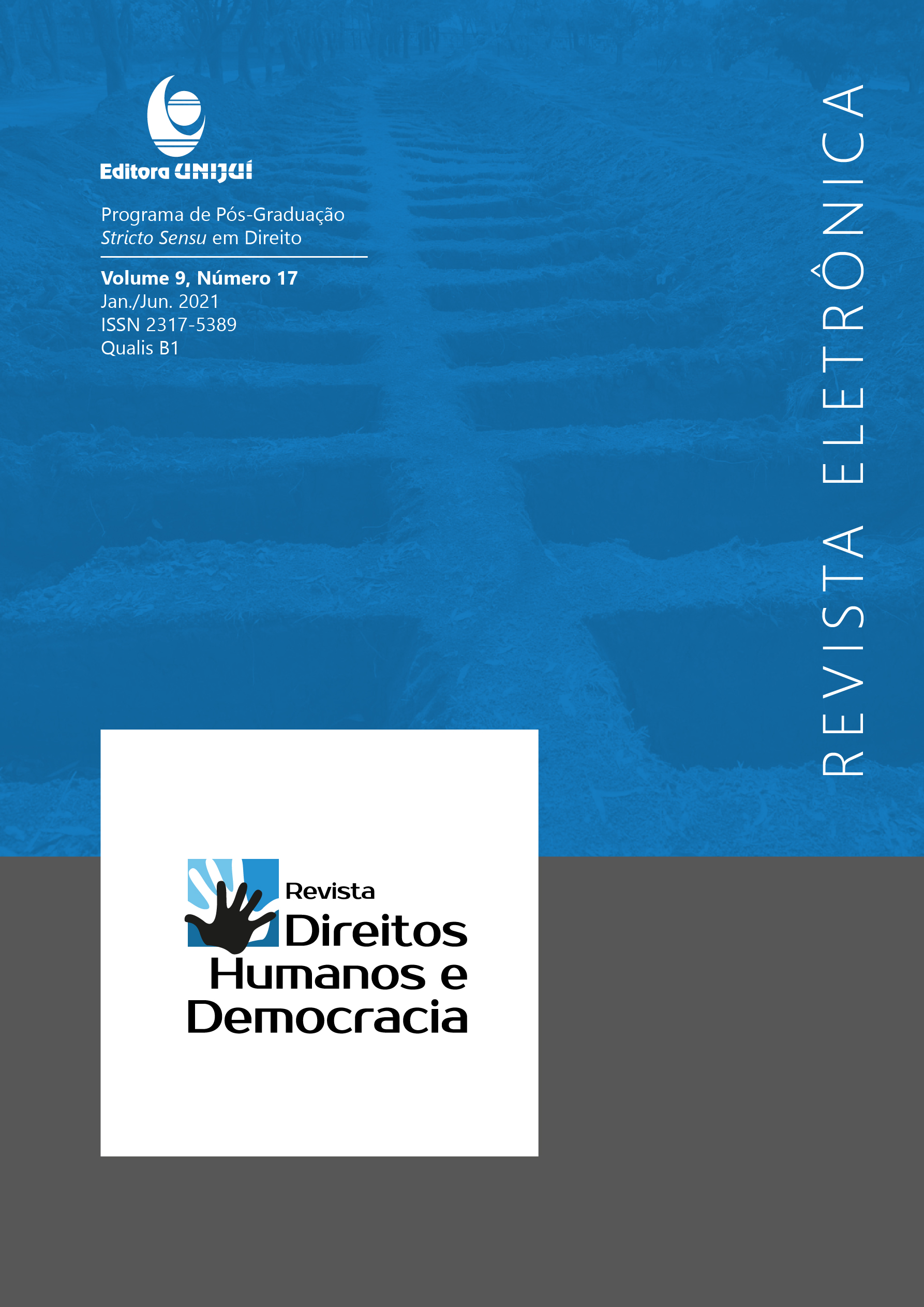EFETIVAÇÃO DAS DECISÕES DO SISTEMA INTERAMERICANO DE DIREITOS HUMANOS EM CASOS SENSÍVEIS: A RESPOSTA DO STF AOS CASOS GOMES LUND E BELO MONTE
EFFECTIVENESS OF THE DECISIONS OF THE INTER-AMERICAN SISTEM OF HUMAN RIGHTS IN SENSITIVE CASES: THE STF’S RESPONSE TO CASES GOMES LUND AND BELO MONTE
DOI:
https://doi.org/10.21527/2317-5389.2021.17.9767Keywords:
Sistema Interamericano de Direitos Humanos. Casos Belo Monte e Julia Gomes Lund. Jurisprudência do STF.Abstract
This work objective to explain how the STF seeks to justify non-compliance with the Inter-American Human Rights System decisions in sensitive cases, and to that end, the qualitative content analysis method is applied to inductively verify arguments used by the STF ministers that shape the behavior of the State and incorporate them into the respective categories. The results demonstrate that the Brazilian judiciary attaches greater importance to the issue of political-institutional power and governance, considering that in the Belo Monte case the arguments of decisions prioritize the country's energy development to the detriment of the affected populations and, in relation to the case Gomes Lund the declaration of constitutionality of the Amnesty Law that exempts the agents of the crimes committed during the dictatorship from criminal liability.
Downloads
Published
How to Cite
Issue
Section
License
By publishing in the Revista Direitos Humanos e Democracia, authors agree to the following terms:
Articles are licensed under the Creative Commons Atribuição 4.0 Internacional (CC BY 4.0), which allows:
Share — copy and redistribute the material in any medium or format;
Adapt — remix, transform, and build upon the material for any purpose, including commercial use.
These permissions are irrevocable, provided the following terms are respected:
Attribution — authors must be properly credited, with a link to the license and indication of any modifications made;
No additional restrictions — no legal or technological measures may be applied that restrict the use permitted by the license.
Notices:
The license does not apply to elements in the public domain or covered by legal exceptions.
The license does not grant all rights required for specific uses (e.g., image rights, privacy, or moral rights).
The journal is not responsible for opinions expressed in the articles, which remain the sole responsibility of the authors. The Editor, with the support of the Editorial Committee, reserves the right to suggest or request modifications when necessary.
Only original scientific articles presenting research results of interest, not previously published or simultaneously submitted to another journal with the same purpose, will be accepted.
References to trademarks or specific products are intended solely for identification purposes and do not imply any promotional endorsement by the authors or the journal.
License Agreement: Authors retain copyright over their articles and grant the Revista Direitos Humanos e Democracia the right of first publication.













